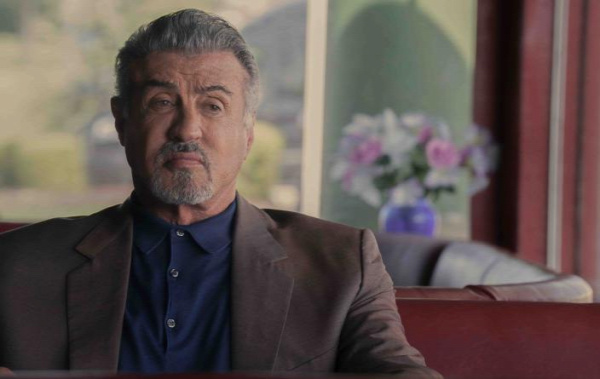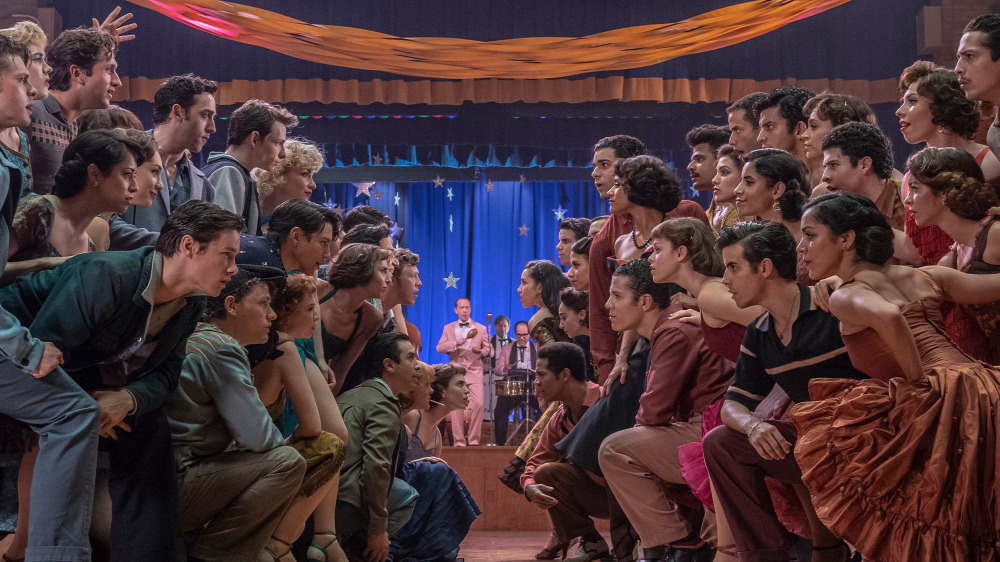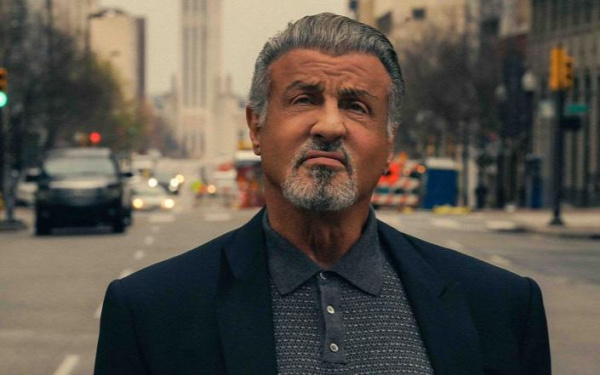
Cinema legend Sylvester Stallone, 76, makes his late series debut in "Tulsa King" on Paramount+. In an interview, the Hollywood megastar explains why he prefers to produce series instead of cinema these days and why people have always misunderstood him as an action star.
From Sunday, March 19, Sylvester Stallone will join the ranks of those former Hollywood superstars who today prefer to turn to the world of series and streaming. Then "Tulsa King" starts at Paramount+. In the nine-part series, Stallone plays New York mobster Dwight "The General" Manfredi, who is released after serving 25 years in prison. However, he does not receive the gratitude from his "family" that he actually expected for his silence behind bars. He is deported to Tulsa in Oklahoma in order to open up new "business fields" there. The nine-part series, which has already been renewed for a second season, is dated, like its main character, but nonetheless a thoroughly enjoyable one. In an interview, conducted privately in London, a cheerful Sylvester Stallone explains why he doesn't like cinema at the moment, but still believes in its future. The 76-year-old is convinced that a film fairy tale like "Rocky" would no longer be possible today, and he admits that privately he is very different from the image of his roles.
teleschau: You are a legend of American cinema. Despite this, you are now concentrating on television and streaming. Is today more interesting?
Sylvester Stallone: Yes, definitely. What else is going on in the cinema? Most are "franchise" products from Marvel and Co. that just keep repeating themselves. In addition, these are usually very physical materials, and I'm definitely too old for something like that. Do you know how much time I spent in the hospital because of my action movies?
teleschau: No, not really ...
Stallone: I've had five back surgeries due to accidents on set. I broke my shoulder, my knees, my ankles. My wife had had enough of this for a long time. A lot of people have forgotten that I started out as an actor in drama. I'm not a born action guy. If you add up the boxing scenes from the first Rocky film, it comes to about five minutes. The rest is drama.

"I was in the mood for a revival of such old material"
teleschau: And you wanted to go there again?
Stallone: Yes, actually for a long time. I've thought about how to get back to this point for decades. However, I realized that if I wrote something myself, it might not be "fresh" enough. So I'm dependent on people who translate my "vibe" - that is, what I would like to tell and convey - into a strong series.
teleschau: How did you solve the problem?
Stallone: Not particularly strategic (laughs), actually "Tulsa King" came about through a bar acquaintance. I met someone, we talked, and he made me a suggestion: let's take two genres that have been a bit forgotten - the western with its cowboys and the gangster genre. Let's produce a mix of both. There used to be 25 western shows on American television at the same time. Then they were gone for a long time. Only now do they seem to be rediscovered. The same goes for classic gangster stuff. You won't find a movie like "The Untouchables" in cinemas today. I was in the mood for a revival of such old stuff and I'm happy to be a part of it with "Tulsa King".
teleschau: Well, your series isn't a classic western, since it's neither set in the past nor has anything to do with horses...
Stallone: It's about the stranger that comes into town. It's a classic Western theme that drives a lot in this series: How is it changing the city? How is she changing him? In fact, we initially had the idea that my character Dwight Manfredi, a classic New York mafia guy, would adapt to Oklahoma culture and maybe even wear a cowboy hat. But we quickly decided against it. He stays true to his roots and makes no compromises. That's how great comedy happens. The guy looks so much like a gangster that the cowboys around him are extremely irritated (laughs).
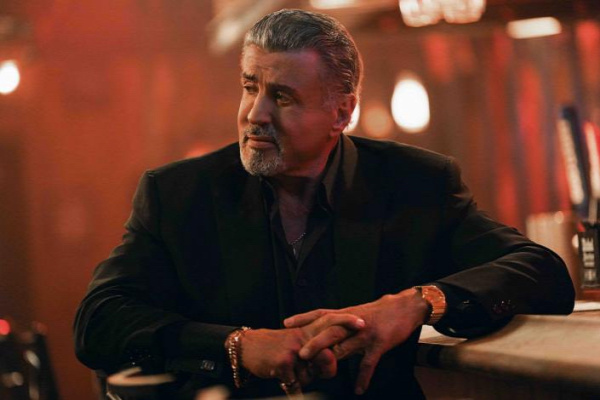
"The big blockbusters don't have any drop height"
teleschau: Everything is compressed in the cinema - the time, the scenes, the character development. In "Tulsa King" they are allowed to develop a character over nine episodes. Was there a dream come true?
Stallone: I was excited as a little boy when the project came together and we started to work. You're right, it's a great privilege to have a lot of time and space, but there's a price to pay: that was six months of work in a row! I had to read 700 pages of script and learn 400 pages of dialogue. A lot of stuff for an old man. And there was no vacation in between. It was as much work as if I had shot five "Rambo" or "Rocky" films in a row. I didn't know that before. I told them that if things continue, we have to talk about the working conditions (laughs).
teleschau: Some great film people like Quentin Tarantino say that they no longer feel like doing cinema because the art form is experiencing a creative and sometimes also economic decline. How do you see it?
Stallone: Cinema is dead - but it will be revived. What we are currently experiencing is not cinema's first crisis. The medium has been written off more than once. When I started making movies, he was sometimes accused of soullessness. At that time there were big musicals, expensive Westerns or costume films that lived mainly from their bombastic set. People in the late 60's were tired of it. But suddenly there were films like "Easy Rider" and the cinema was exciting again. It is the same today. One can say about the big cinema blockbusters from Marvel and Co.: The bigger the productions get, the smaller the heart that beats in the middle.
teleschau: But it doesn't work without a heart, right?
Stallone: People want to see themselves in the movies. They want to feel something, not be constantly overwhelmed by explosions and other bombast. The big blockbusters don't have any headroom. They take no risks and create hardly any identification. I remember watching the Netflix series Bloodline a few years ago, which takes a long time to dissect a family's relationships and drama. I was totally thrilled, because I'm a family person too and think: That's the most valuable and important thing we have in life. But are you currently seeing big films about family in cinemas? It's kind of absurd that the things that move us the most don't appear in the cinema.
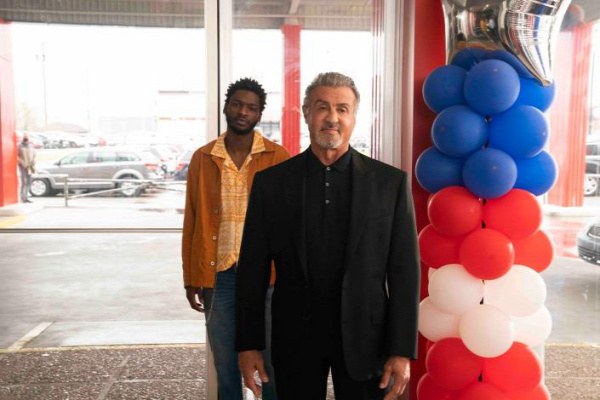
"It's toxic masculinity, we don't want to see that"
teleschau: So Sylvester Stallone loves melodrama more than action cinema …
Stallone: Giving the Toughen is easy. But it's hard to be affectionate.
teleschau: As a completely unknown young author, you wrote the screenplay for "Rocky" and played the leading role in the film. "Rocky" received three Oscars and numerous nominations. You must have felt like you were in a fairy tale. Would something like this even be possible today?
Stallone: No. Nobody would buy the story from me today. They would say, "This is toxic masculinity, we don't want to see that." Which, of course, is nonsense, because Rocky is a normal working-class guy. A guy who wouldn't normally grow into much. Rocky would have too few rough edges for today's film business. No political agenda, no serious problems. It would be too easy for today's storytelling.
teleschau: But hasn't Rocky's everyman image made it a mass phenomenon in cinemas?
Stallone: Sure. When "Rocky" won the Oscar for the best picture of the year in 1977, all other nominated films were highly political. "Taxi Driver" for example or "Network". I didn't know anything about politics at all and didn't want to write anything political. People kept asking me back then, "Is Rocky a Republican - or is he a Democrat?". Many then said, "Rocky's a flag-waver, he's definitely a Republican." I usually replied, "I don't think Rocky owns a flag."
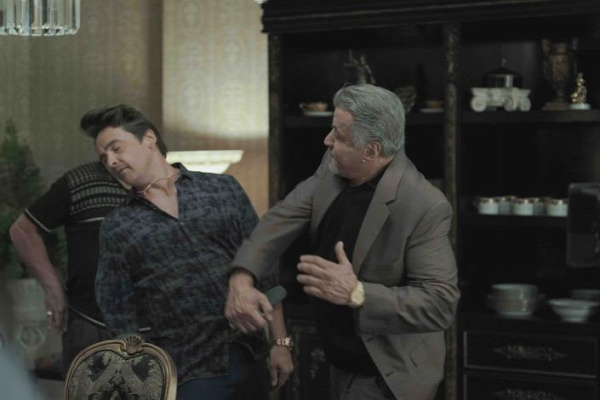
"There are dreams, but I won't tell them to you"
teleschau: Do you think interest in drama will return?
Stallone: I'm sure of that. Our life is full of drama. Most of the time, we humans lead hard lives. There is always something happening that throws us or our children off track. Nothing concerns us as much as this topic. So why should we tell stories from other galaxies and parallel worlds when our own world is already so demanding, complex and extremely interesting? I think there are a lot of young filmmakers working on great stories on a low budget. Your time will come - also in the cinema.
teleschau: You are in your mid-70s and have experienced a lot. Is there something in the field of film art that you would still like to achieve?
Stallone: Yes, there are dreams, but I'm not going to tell you about them because it's extremely unrealistic that they will come true. You have to play certain games to be successful in this business. And I definitely don't feel like participating in these games anymore. No, I won't say anything about that (laughs).
teleschau: If you don't reveal your secret dreams, can you at least say which games you don't feel like playing anymore?
Stallone: You have to be a very "social" person. Go to the right parties, meet the right people. You have to have conversation and sell yourself. But I'm not like that. Sometimes I give a speech, then there is fire in it. But that rarely happens. Normally I come home - and stay there for a month. Just being at home for four weeks doesn't bother me at all. I don't even miss my friends. I read, I write, I paint. That's the way I am. I really only come out on stage or in front of the camera, so I can't sell any material.
